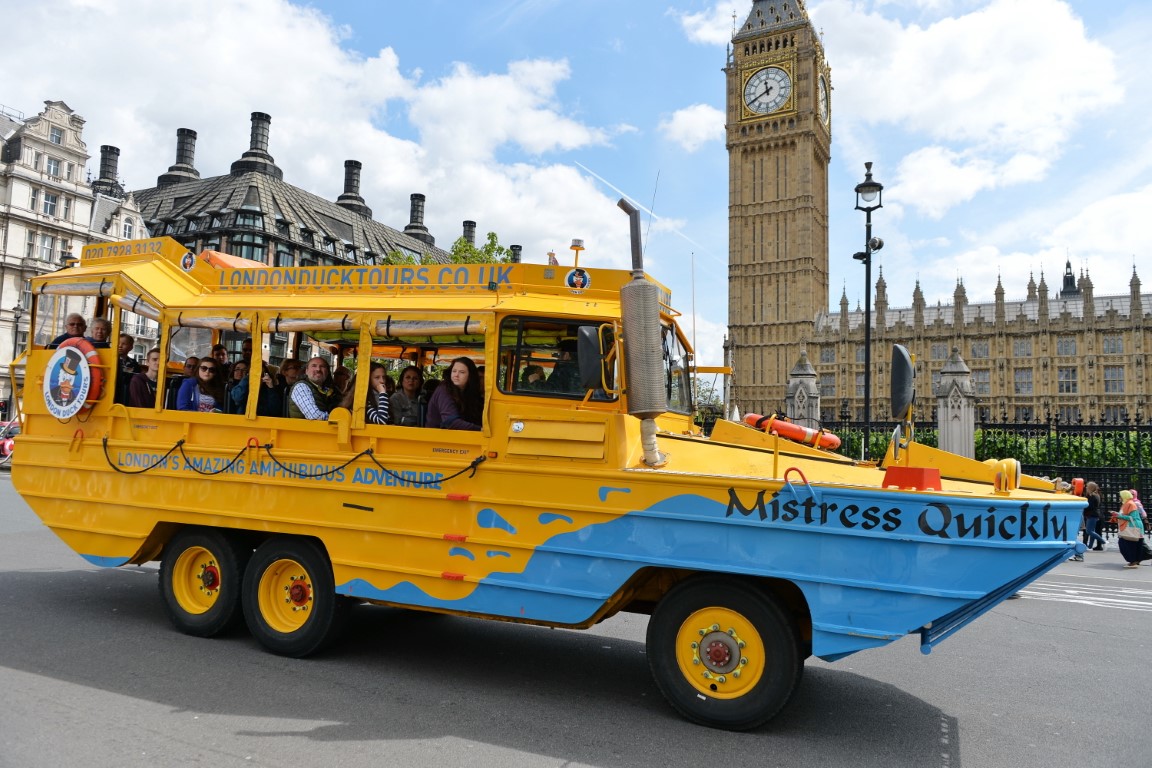Towards the end of the hot summer of 2013 a fire on a tourist boat on the Thames brought home the importance of fire precautions on board.

The boat fire caught close to the bow and appeared to take hold quickly. Eventually a third of the boat was destroyed or severely damaged.
Thanks to the captain and crew taking the correct action, with prompt attention from land and river based fire crews as well as other boats on the river, no one was seriously hurt. Of the 28 tourists on board, three were treated in hospital for smoke inhalation and others, some of whom had jumped into the river, were treated for shock and the effects of the cold water.
The boat was operated by London Duck Tours and is an amphibious wartime troop carrier called a DUKW - commonly known as a duck - which were used in large numbers for the Normandy D-Day landings. They are used around the world for marine tourism operations, this one being painted bright yellow.
But two ducks have sunk in the Albert Dock on the Mersey in recent years and this summer the London Duck Company had seven out of its nine boats grounded over safety fears. The craft were originally designed to be built quickly and cheaply, to last only for the war effort.
Being a tourist attraction the insurance policy for the DUKW would have been far more complex and expensive than a pleasure use policy. And we obviously do not know what policies were in force for this particular boat.
But the point is worth making that even if you are just taking friends and family on a boat or yacht, you still need to have third party liability as part of your boat insurance policy. These days people are far more likely to sue if they get hurt, largely thanks to wall-to-wall advertising by legal companies encouraging this practice.
This is a story with a happy ending. The boat had sufficient life preservers and other boats and fire crews were close at hand. It's well worth thinking about what you would do in case of a similar fire and having a plan of action.
It is of course far better to avoid fire in the first place. But if it does happen it's vital that everyone knows what to do. It will lessen the chance of people being hurt and reduce damage to your boat, increasing your chances of avoiding a higher insurance premium for the following year.
We are indebted to the Boat Safety Scheme (BSS) for the following advice and checklist, which we have found invaluable.
Make a fire emergency plan for yourself and everyone on board - go through it regularly so the planned actions are second-nature. With an average of over one accidental boat fire a week, planning for a fire emergency should be something every boater does.
BSS manager, Graham Watts said; 'If fire happens, especially in the very early hours of the morning when people are deep asleep, then reactions need to be instinctive and automatic if crew members are all to escape to safety.
'You may be on new moorings, so check your plan is still OK, before you settle down for the night and have a grab bag with the vital items in it, if you are a car owner, remember to put the keys in it too.'
There is more fire safety advice for inland and sea going boaters in the Fire Kills / BSS booklet 'Fire Safety on Boats'. It is available from local fire services and also downloadable from here
Just enter your quote reference and email to recall your quote.